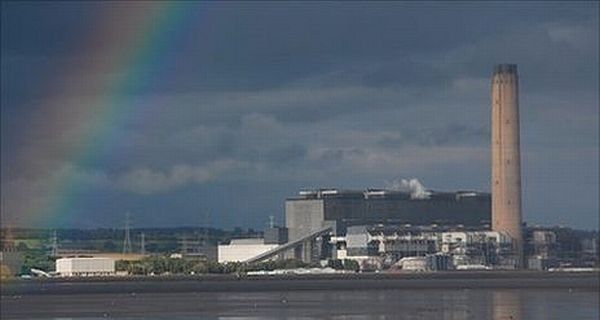 Scottish Power, National Grid and Shell UK, the three energy giants of UK have proposed to lay onshore CO2 pipeline to transport 2 million tons of CO2 from different industrial sources to reduce greenhouse gas emissions. They will utilize the existing natural gas line that runs from Falkirk to Peterhead for the CO2 transportation project.
Scottish Power, National Grid and Shell UK, the three energy giants of UK have proposed to lay onshore CO2 pipeline to transport 2 million tons of CO2 from different industrial sources to reduce greenhouse gas emissions. They will utilize the existing natural gas line that runs from Falkirk to Peterhead for the CO2 transportation project.
The energy giants will use the carbon capture and sequestration (CCS) process, which involves the collection of CO2 from different industrial and power plants and store them in suitable sites like oil and gas fields, ocean beds or as mineral storage. This transported CO2 can also be injected to depleted oil fields to enhance oil production. The stored CO2 can be recycled to produce hydrocarbons or used for other purposes.
According to the proposed plan, the 260km-long CO2 transportation pipeline will transport CO2 gas through Fife, Falkirk, Stirling, Perth and Kinross, Angus and Aberdeenshire. This gas will be captured from the Longannet power plant in Fife, one of the highest pollutant emitter of the country. This coal based power plant is the country’s second largest power plant that supplies power to two million people, emitting 7-8 million tons of CO2 annually. This onshore CO2 pipeline will reduce the carbon emission to an appreciable amount by transporting two million tons of gaseous carbon dioxide every year.
The CO2 gas captured from the flue of Longannet power plant will be transported to the compressing center Blackhill, Aberdeenshire. After compression, the gas will be pumped and stored in the Goldeneye Platform of North Sea. According to the studies carried out by experts, the existing pipelines will not require any significant modifications regarding CO2 transportation. There is a proposal to construct a new pipeline from Longannet to Dunipace, near Falkirk to get connected with the natural gas pipeline.
The work for constructing the new pipeline is scheduled to start in 2014 and the full fledged CO2 transportation will be carried out within 2015. This project has bagged a government subsidy of 1 billion pounds. Moreover, the energy penalty in adopting this process cannot be overruled. Leakage of the stored CO2 is another area of concern. The HSE (Health and Safety Executive) and SEPA (Scottish Environmental Protection Agency) have completed the initial assessment regarding the safety and health hazards of CO2 transportation. Successful implementation of the CCS process from Longannet power plant to North Sea platform will reduce the greenhouse gas emission of the country by an appreciable amount.
Source: BBC




